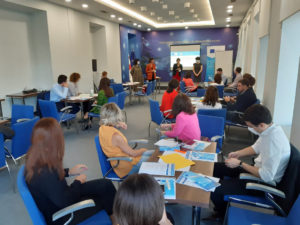
Strengthening the Internal Market
Project is comprised of six components, as follows: Component 1: Improving the strategic, legislative and institutional framework in area of Free Movement of Goods Component 2: Improving the strategic, legislative and institutional framework in area of Free Movement of Services. Component 3: Improving the legislative alignment with the

Support for Policy Reform Accession and Effectiveness (SUPRAE)
In March 2020, North Macedonia began accession negotiations with the EU. However, the country still needs to meet EU standards, enact essential reforms, and institutional capacities to comply with the acquis and clusters. The project’s goal is to assist North Macedonia in its EU accession by increasing strategic

Visibility and Communication for Actions Related to AA/DCFTA Implementation in the Framework of the EU Funded Assistance Programmes
The National Implementation Plan of the EU-Moldova Association Agreement (AA) establishes key priorities to foster political association and economic integration with the EU, including actions assigned to institutions involved in the AA/DCFTA (Deep and Comprehensive Free Trade Area). The DCFTA defines a preferential, mutually advantageous trade relationship between

Support to Development of a Rural Business Information System in Azerbaijan
This project aims to support the development of a Rural Business Information System (RBIS) in Azerbaijan. The project aims to support rural development by increasing public authorities and other agricultural stakeholders’ capacity to collect and provide publicly available, current, and relevant market information and data related to Azerbaijan’s

Improvement of Legislation, Control and Awareness in Food Safety, Animal Health and Welfare in Ukraine
The project aims to support the implementation of the Association Agreement’s provisions between the EU and Ukraine concerning food safety, animal health, and welfare.

Facility for the Implementation of the EU-Georgia Association Agreement- II
The project aims to strengthen the capacity of public institutions in Georgia to meet the country’s commitments under the EU-Georgia Association Agreement (AA), including the Deep and Comprehensive Free Trade Area.

